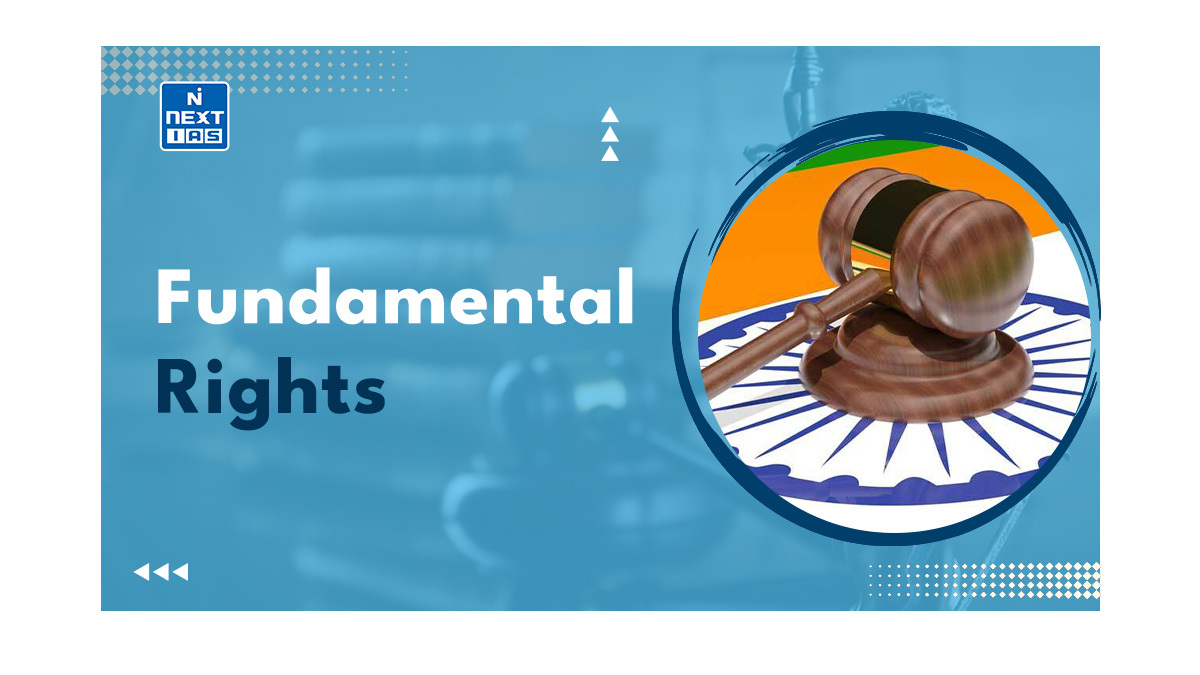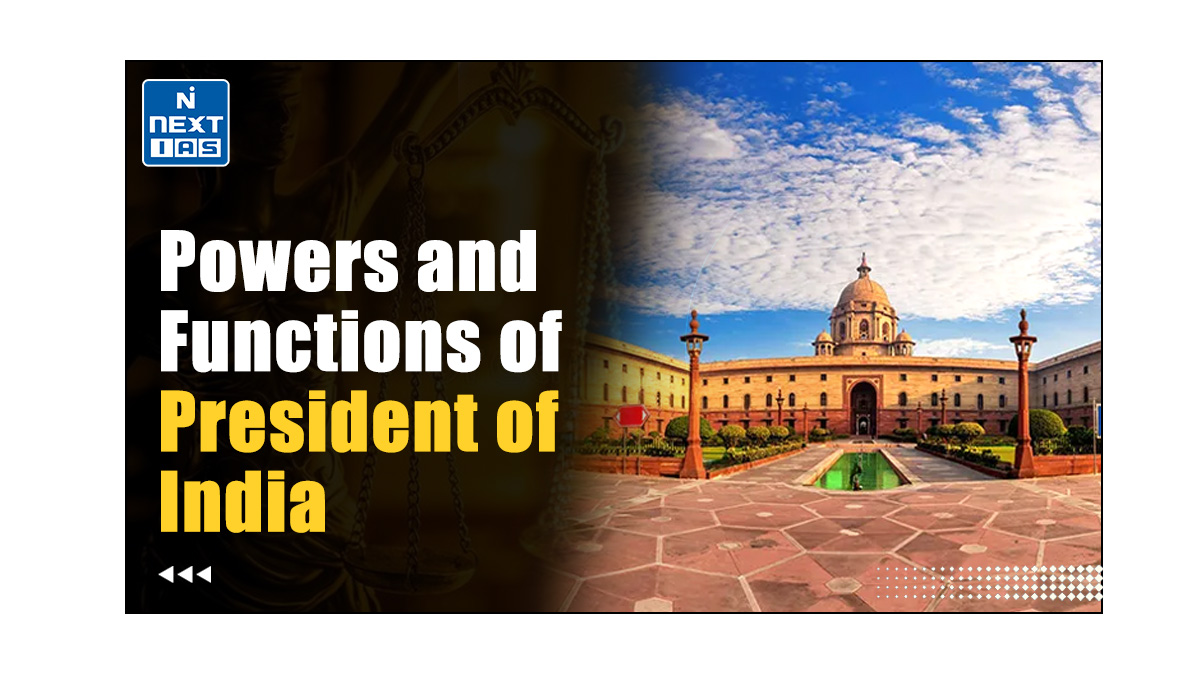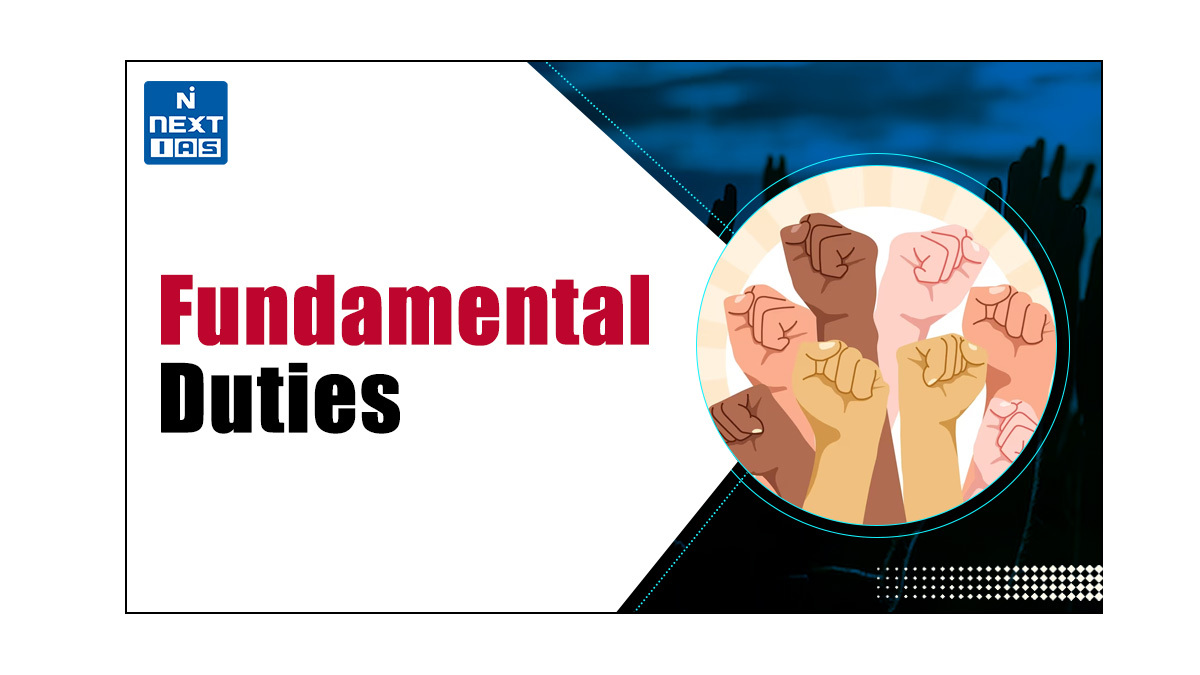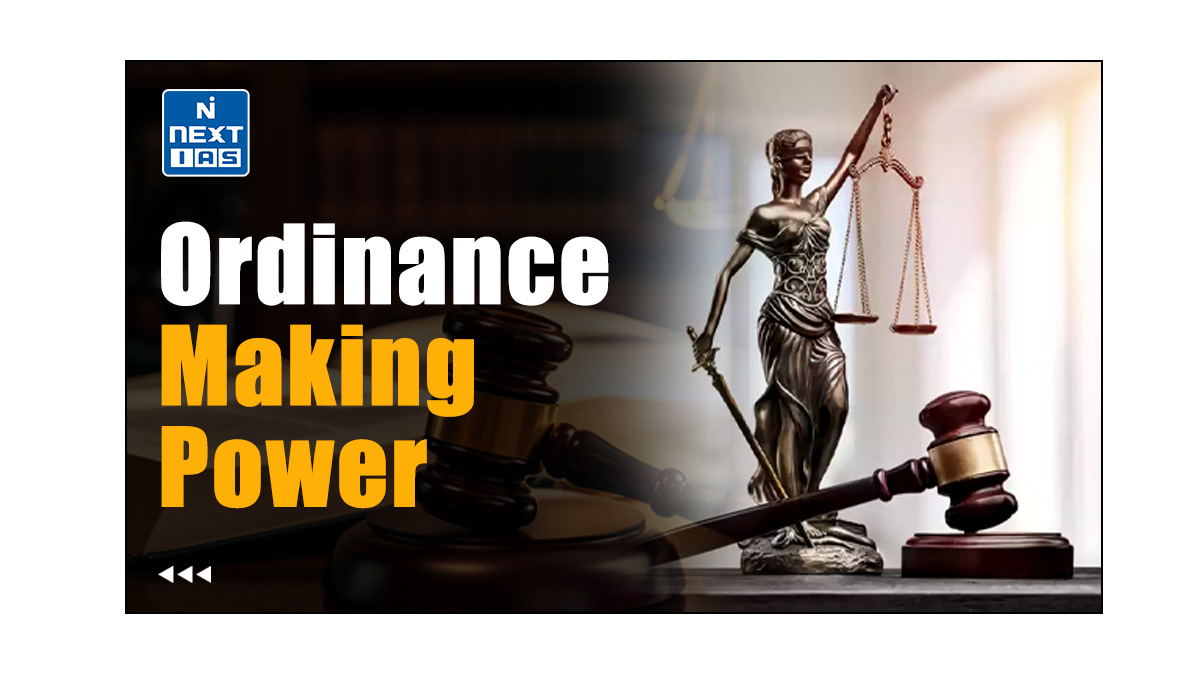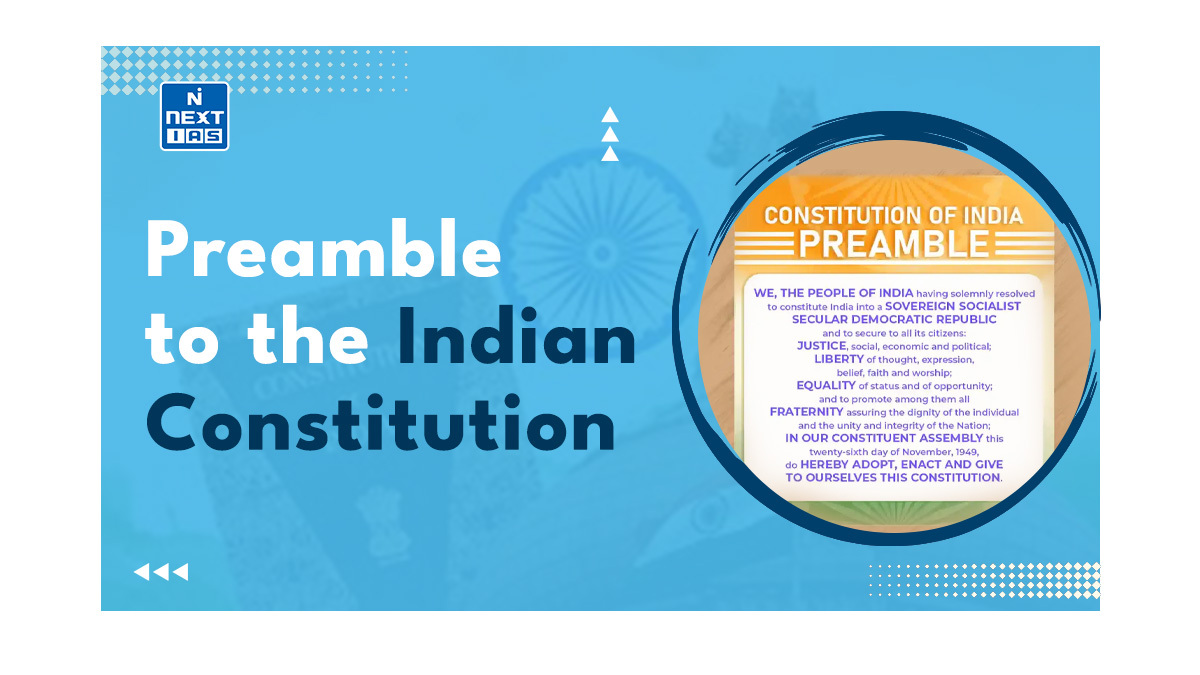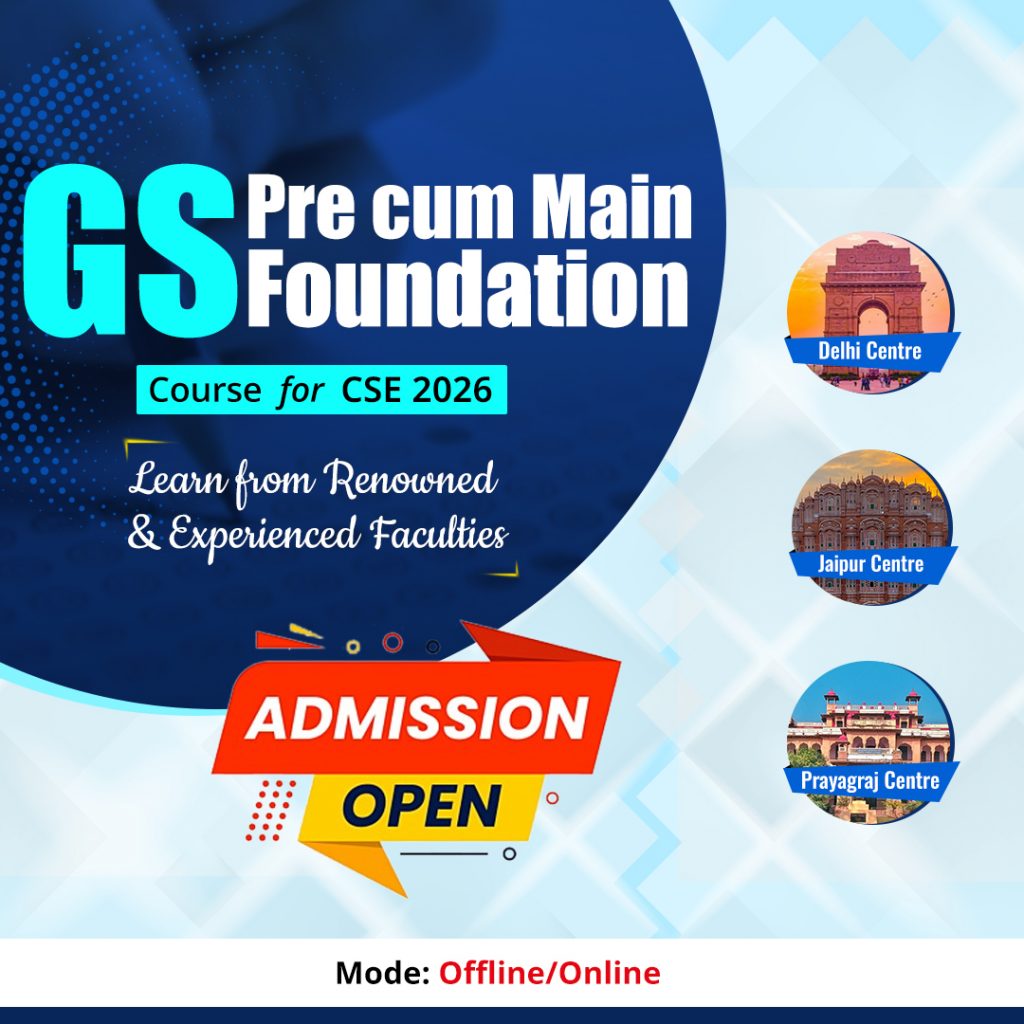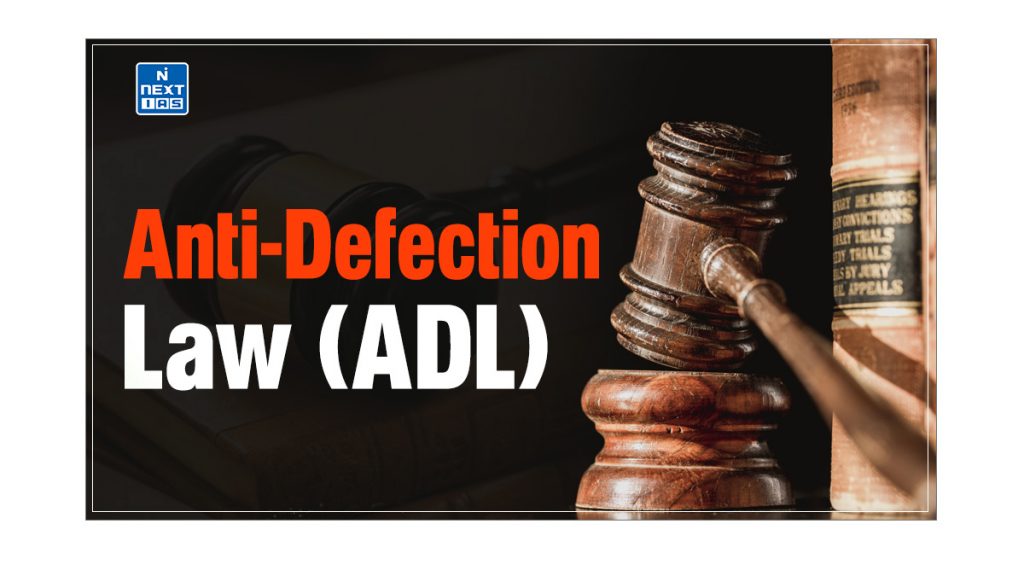
The Anti-Defection Law (ADL) in India plays a vital role in maintaining the stability and integrity of democratic systems. By maintaining party discipline among the Members of Parliament and State Legislatures, it ensures that the mandate given by the electorate is respected. This article of NEXT IAS aims to study in detail the Anti-Defection Law (ADL), its meaning, constitutional provisions, significance, and other related aspects.
What is Defection?
- Defection, in a political context, refers to the act of a member of a legislative body, such as a parliament or state assembly, abandoning their affiliation with one political party, on whose ticket the member was elected, to join another political party.
- This often involves a shift in loyalty for personal gains, such as the promise of a position of power or other benefits.
- Along with breaching the trust of the electorate, defection can undermine the stability of governments and hence the governance processes.
What is Anti-Defection Law (ADL)?
- The Anti-Defection Law (ADL) in India is a legal framework that seeks to curb the practice of political defection by members of the legislature, with the goal of promoting political stability and maintaining party discipline.
- Its primary aim is to deter the Members of Parliament and Members of State Legislatures from switching parties or voting against their party’s directives by imposing the threat of disqualification.
Constitutional Provisions Regarding Anti-Defection Law (ADL)
- The Anti-Defection Law (ADL) in India was introduced through the 52nd Amendment Act of 1985.
- It added the Tenth Schedule to the Indian Constitution, which contains the provisions related to the Anti-Defection Law.
- Later, the 91st Amendment Act of 2003 made some changes to certain provisions of the Anti-Defection Law (ADL).
This entire development has been described in the following section.
52nd Amendment Act of 1985
- The 52nd Amendment Act of 1985 provided for the disqualification of the Members of Parliament and the State Legislatures on the grounds of defection from one political party to another.
- To facilitate this, the Act made changes to four articles of the Indian Constitution:
- Article 101 and Article 190, which deal with the Vacation of Seats by Members of Parliament and Members of State Legislatures respectively.
- Article 102 and Article 191, which pertain to Disqualification from Membership of Parliament and State Legislatures respectively.
- Additionally, the Act added a new schedule, the Tenth Schedule, to the Indian Constitution.
- Thus, the 52nd Amendment Act is often referred to as the ‘Anti-Defection Law’.
Tenth Schedule (10th Schedule)
- The Tenth Schedule of the Indian Constitution was added by the 52nd Amendment Act of 1985.
- It contains provisions related to the disqualification of Members of Parliament (MPs) and Members of State Legislatures (MLAs) on the grounds of defection.
- The Tenth Schedule lays down the circumstances under which a legislator can be disqualified from holding office if they violate certain conditions, such as voluntarily giving up their membership of a political party or voting against their party’s official stance on certain matters.
- The provisions of the 10th Schedule, in its present form, have been discussed in detail in the section below.
91st Amendment Act of 2003
The 91st Amendment Act of 2003 has made the following changes in certain provisions of the Indian Constitution:
- The total number of ministers, including the Prime Minister, in the Central Council of Ministers shall not exceed 15 per cent of the total strength of the Lok Sabha.
- A member of either House of Parliament belonging to any political party who is disqualified on the ground of defection shall also be disqualified to be appointed as a minister.
- The total number of ministers, including the Chief Minister, in the Council of Ministers in a State shall not exceed 15 per cent of the total strength of the Legislative Assembly of that State. But, the number of ministers, including the Chief Minister, in a State shall not be less than 12.
- A member of either House of a State Legislature belonging to any political party who is disqualified on the ground of defection shall also be disqualified to be appointed as a minister.
- A member of either the House of Parliament or the House of a State Legislature belonging to any political party who is disqualified on the ground of defection shall also be disqualified from holding any Remunerative Political Post.
| The expression “Remunerative Political Post” means: – Any office under the Central Government or a State Government where the salary or remuneration for such office is paid out of the public revenue of the concerned government. – Any office under a body, whether incorporated or not, which is wholly or partially owned by the Central Government or a State Government, and the salary or remuneration for such office is paid by such body, except where such salary or remuneration paid is compensatory in nature. |
- The provision of the Tenth Schedule (Anti Defection Law) pertaining to an exemption from disqualification in case of a split by one-third of members of the legislature party has been deleted. It means that the defectors have no more protection on the grounds of splits.
Provisions of Anti-Defection Law (ADL)
The Tenth Schedule contains the following provisions with respect to the disqualification of Members of Parliament and the Members of the State Legislatures on the grounds of defection:
Disqualification of Members
The provisions related to the disqualification of members of different categories are as follows:
Members of Political Parties
A member of a House belonging to any political party becomes disqualified for being a member of the House if he/she:
- Voluntarily gives up the membership of such political party,
- Votes or abstains from voting in such House contrary to any direction issued by the political party without obtaining prior permission of such party and such act has not been condoned by the party within 15 days.
Hence, it is clear that a member elected on a party ticket should continue in the party and obey the party’s directions.
Independent Members
An independent member of a House, who is elected without being set up as a candidate by any political party, becomes disqualified to remain a member of the House if he/she joins any political party after such election.
Nominated Members
- A nominated member of a House becomes disqualified from being a member of the House if he/she joins any political party after the expiry of six months from the date on which he/she takes his/her seat in the House.
- Thus, he/she may join any political party within six months of taking his/her seat in the House without inviting disqualification.
Exceptions
The above disqualification of members on the grounds of defection does not apply in the following two cases:
- If a member goes out of his/her party as a result of a merger of the party with another party.
- A merger takes place when two-thirds of the members of the party have agreed to such a merger.
- If a member, after being elected as the Presiding Officer of the House, voluntarily gives up the membership of his/her party or rejoins it after he/she ceases to hold that office.
- This exemption has been provided to promote the dignity and impartiality of the Speaker’s office.
| Note: The provision of the Tenth Schedule pertaining to exemption from disqualification in case of split by one-third of members of the legislature party has been deleted by the 91st Amendment Act of 2003. It means that the defectors have no more protection on the grounds of splits. |
Deciding Authority
Any question regarding disqualification arising out of defection is to be decided by the Presiding Officer of the House.
In this respect, the following points are to be noted:
- There is no time limit for him/her to decide such a case.
- The decision of the Presiding Officer is subject to Judicial Review.
- Originally, the Anti-Defection Act provided that the decision of the Presiding Officer is final and cannot be questioned in any court.
- However, in the Kihoto Hollohan vs. Zachillhu Case (1992), the Supreme Court declared this provision unconstitutional on the grounds that it sought to take away the jurisdiction of the Supreme Court and the High Courts.
- The Supreme Court held that the Presiding Officer while deciding a question under the Tenth Schedule, functions as a tribunal. Hence, his/her decision like that of any other tribunal, is subject to judicial review on the grounds of malafide, perversity, etc.
| In the Kihoto Hollohan vs. Zachillhu Case (1992), the Supreme Court rejected the contention that the vesting of adjudicatory powers in the Presiding Officer is by itself invalid on the grounds of political bias. In other words, the courts have not found the Presiding Officer’s role in deciding defection cases to be unconstitutional or invalid, despite the potential for political bias. |
Rule-Making Power
- The Presiding Officer of a House is empowered to make rules to give effect to the provisions of the Tenth Schedule.
- All such rules must be placed before the House for 30 days. The House may approve, modify, or disapprove them.
- The Presiding Officer may direct that any willful contravention by any member of such rules may be dealt with in the same manner as a Breach of Privilege of the House.
- According to the rules so made:
- The Presiding Officer can take up a defection case only when he/she receives a complaint from a member of the House.
- Before taking the final decision, he/she must give the member (against whom the complaint has been made) a chance to submit his/her explanation.
- He/she may also refer the matter to the Committee of Privileges for inquiry.
Hence, defection has no immediate and automatic effect.
Advantages of Anti-Defection Law (ADL)
The advantages of the Anti-Defection Law in India are as follows:
- It prevents political defections motivated by the lure of some benefits.
- It provides for greater stability in the body politic by checking the propensity of legislators to change parties.
- It facilitates the democratic realignment of parties in the legislature by way of the merger of parties.
- It reduces corruption at the political level as well as non-developmental expenditure incurred on irregular elections.
- It gives a clear-cut constitutional recognition of the existence of political parties.
Criticism of Anti-Defection Law (ADL)
The Anti-Defection Law in India has been criticized on the following grounds:
- This law fails to distinguish between dissent and defection. This, in turn, has the effect of curbing the legislator’s right to dissent and freedom of conscience.
- Thus, it puts the party bossism on the pedestal and sanctions tyranny of the party in the name of the party discipline.
- It bans individual defection but allows group defection through a merger. This distinction seems irrational.
- It does not provide for the expulsion of a legislator from his/her party for his/her activities outside the legislature.
- Its discrimination between an independent member and a nominated member is illogical. If the former joins a party, he/she is disqualified while the latter is allowed to do the same.
- Its vesting of decision-making authority in the Presiding Officer is criticized on the following two grounds:
- He/she may not exercise this authority in an impartial and objective manner due to political exigencies.
- He/she might lack the legal knowledge and experience to adjudicate the cases.
Conclusion
The Anti-Defection Law in India is a complex and multifaceted aspect of India’s constitutional framework, with both proponents and critics weighing in on its merits and shortcomings. While the law has been credited with providing greater stability in the body politic and reducing corruption, it has also faced significant criticism for curtailing the legislator’s right to dissent and the potential for bias in the decision-making process. As India’s democracy continues to evolve, the effectiveness and implementation of the Anti-Defection Law remain subjects of ongoing debate and scrutiny, with calls for reforms and improvements to ensure a more robust and representative system of governance.
GS - 2
